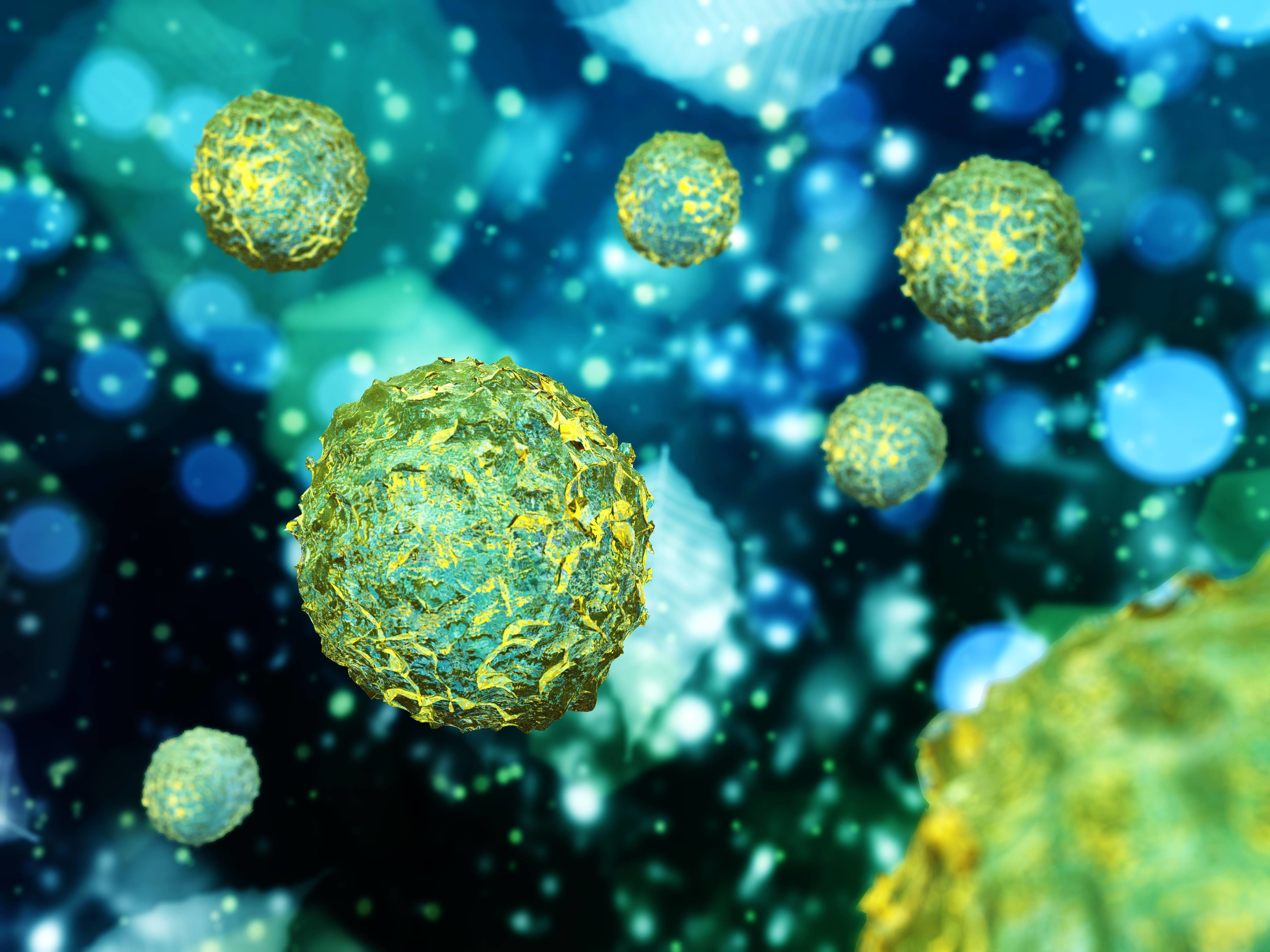The risk for serious infections rises with age, as people’s immune systems lose the ability to respond to novel infections. Part of the reason for this is that the types of hematopoietic stem cells (HSCs), which make the various types of blood cells, change with age.
Some HSCs, called myeloid-biased HSCs (my-HSCs) produce mostly myeloid cells, which include red blood cells, platelets, and most cells of the innate immune system. Others, called balanced HSCs (bal-HSCs), produce a healthy mix of myeloid and lymphoid cells, which include the T and B cells that make up the adaptive immune system.
The proportion of my-HSCs increases with age. This leads to more myeloid cells and fewer lymphoid cells. More myeloid cells increase inflammation and bring an increased risk of atherosclerosis and myeloid-related diseases such as leukemia. Fewer lymphoid cells reduces the ability to fight infections. A research team led by Drs. Kim Hasenkrug and Lara Myers at NIH and Drs. Irving Weissman and Jason Ross at Stanford University School of Medicine explored whether reducing my-HSCs could restore a more “youthful” immune system in aged mice. The results appeared in Nature on March 27, 2024.
The team began by identifying proteins on the surface of mouse HSCs that are unique to my-HSCs. They then created antibodies against these proteins and used them to deplete my-HSCs in aged mice.
Depleting my-HSCs reduced the effects of aging on the mouse immune system. It increased lymphoid progenitor cells, which give rise to T and B cells, in the bone marrow. Consequently, treated mice had more naïve T cells and B cells in their blood than untreated mice. These cells allow the immune system to learn to recognize novel infections. The treatment also lowered levels of exhausted T cells and age-associated B cells, along with certain inflammatory markers.
When the researchers vaccinated aged mice with a live, weakened virus, those with depleted my-HSCs had a stronger T cell response than untreated mice. The treated mice also gained better protection against infection from the vaccination.
These findings could explain why older people are more vulnerable to infections such as SARS-CoV-2. Weakened adaptive immunity from fewer lymphoid cells makes it harder for them to fight off the infection. At the same time, increased myeloid cells cause harmful inflammation. The researchers noted that the genes that characterize my-HSCs in mice are also found in aged human HSCs. This suggests that my-HSC depletion might be used in humans to relieve certain age-associated health problems.
“During the start of the COVID-19 pandemic, it quickly became clear that older people were dying in larger numbers than younger people,” Weissman says. “This trend continued even after vaccinations became available. If we can revitalize the aging human immune system like we did in mice, it could be lifesaving when the next global pathogen arises.”
As with anything you read on the internet, this article should not be construed as medical advice; please talk to your doctor or primary care provider before changing your wellness routine. This article is not intended to provide a medical diagnosis, recommendation, treatment, or endorsement. These statements have not been evaluated by the Food and Drug Administration.
Content may be edited for style and length.
References/Sources/Materials provided by:
This article was written by Brian Doctrow, Ph.D., at NIH Research Matters
Depleting myeloid-biased haematopoietic stem cells rejuvenates aged immunity. Ross JB, Myers LM, Noh JJ, Collins MM, Carmody AB, Messer RJ, Dhuey E, Hasenkrug KJ, Weissman IL. Nature. 2024 Apr;628(8006):162-170. doi: 10.1038/s41586-024-07238-x. Epub 2024 Mar 27. PMID: 38538791.




